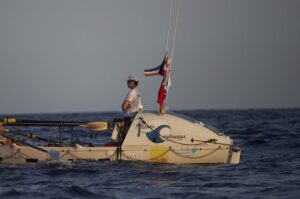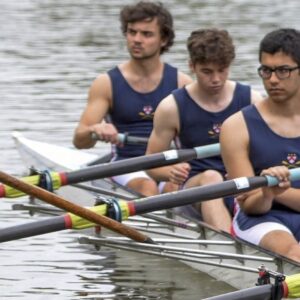The full article can be found here
Tell us more about yourself and the author team.
First author, Dr Jack Galsworthy recently graduated from King’s College London having focused on extreme physiology and the impact of austere environments on athlete health during his first degree.

Dr James Carr is also a KCL graduate medical student, who rowed competitively whilst studying for his undergraduate degree at Oxford University. He has a particular interest in pre-hospital medicine and major trauma research. His knowledge of the medical issues that affect in-shore rowers was invaluable and helped to add context to our findings at sea.

Dr Russell Hearn is a GP and a Senior Lecturer in Medical Education at KCL. He has a background in expedition medicine and is also a Fellow of the Academy of Wilderness Medicine (USA). His experience in this field helped us to focus this project’s aims and methodology as well as supervising the overall study.

What is the story behind your study?
In December 2015, Jack rowed across the Atlantic Ocean together with a friend breaking the World Record for the youngest pair to row across an ocean. Based on his personal experience he was keen to understand the health impact for ultra-endurance rowers. As a result this study concept was born to try to explore the common health issues facing this unique population of athletes at sea.
In your own words, what did you find?
Happily, this is a generally safe sport, but transatlantic rowers do experience common minor complaints mainly dermatological; musculoskeletal; mental health; and gastrointestinal. We found athletes are well supported by course organisers which enabled their success.
What was the main challenge you faced in your study?
The main challenge facing this project was the lack of an existing evidence base regarding this sport. This limited insight meant that we were not able to focus our study down one avenue and instead had to ask broader questions relating to the incidences of various medical complaints. However, having first-hand experience of the toll ocean rowing takes on the body provided some insider research context to our findings.
If there is one take-home message from your study, what would that be?
Transatlantic rowers experiences extreme physiological and mental stresses whilst living in some of the harshest environments on earth for months at a time. Medical teams supporting these sportspeople should prepare participants for the frequent medical problems through training and provision of appropriate onboard treatment.